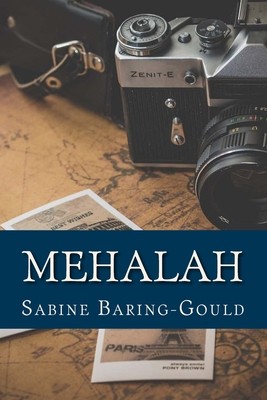
- We will send in 10–14 business days.
- Author: Sabine Baring-Gould
- Publisher: CreateSpace Independent Publishing Platform
- ISBN-10: 1979964114
- ISBN-13: 9781979964111
- Format: 15.2 x 22.9 x 2 cm, minkšti viršeliai
- Language: English
- SAVE -10% with code: EXTRA
Reviews
Description
The Reverend Sabine Baring-Gould (1834-1924), was one of the most remarkable literary figures of his age. Theologian, hymn-writer, archaeologist, folk-song collector, poet, hagiologist, historian, antiquarian and novelist, he was responsible at one time for more books in the British Museum Library than any other author. Mehalah: a Story of the Salt Marshes (1880) was one of his first novels and created something of a sensation, being compared by Swinburne to Wuthering Heights: if it had not been followed by thirty others, distinctly inferior, Baring-Gould might well today enjoy a greater reputation than he does. Nevertheless, though nowadays largely forgotten, Mehalah remains an astonishing achievement: could this grim tale really have come from the pen of the man who wrote "Onward Christian Soldiers" or the 16-volume Lives of the Saints? As rector of East Mersea from 1871 to 1881 Baring-Gould got to know well the marshland and riverscape that he describes so hauntingly, and it may be that some of the characters - for example the potato-loving Mersea parson, or the strange Mrs. de Witt - were based on observation of his neighbours and parishioners. However, much of the book seems to well up from uncontrolled and possibly uncontrollable internal impulses, whether in the portraits of the proud and defiant but in the end defeated Mehalah, and the sadistic and passionate Elijah Rebow who keeps a mad brother chained in a cellar beneath his house, or in the radical misogyny that leads the author to write "Generosity, pity, charity are unknown quantities in the feminine equation."
- Author: Sabine Baring-Gould
- Publisher: CreateSpace Independent Publishing Platform
- ISBN-10: 1979964114
- ISBN-13: 9781979964111
- Format: 15.2 x 22.9 x 2 cm, minkšti viršeliai
- Language: English English
The Reverend Sabine Baring-Gould (1834-1924), was one of the most remarkable literary figures of his age. Theologian, hymn-writer, archaeologist, folk-song collector, poet, hagiologist, historian, antiquarian and novelist, he was responsible at one time for more books in the British Museum Library than any other author. Mehalah: a Story of the Salt Marshes (1880) was one of his first novels and created something of a sensation, being compared by Swinburne to Wuthering Heights: if it had not been followed by thirty others, distinctly inferior, Baring-Gould might well today enjoy a greater reputation than he does. Nevertheless, though nowadays largely forgotten, Mehalah remains an astonishing achievement: could this grim tale really have come from the pen of the man who wrote "Onward Christian Soldiers" or the 16-volume Lives of the Saints? As rector of East Mersea from 1871 to 1881 Baring-Gould got to know well the marshland and riverscape that he describes so hauntingly, and it may be that some of the characters - for example the potato-loving Mersea parson, or the strange Mrs. de Witt - were based on observation of his neighbours and parishioners. However, much of the book seems to well up from uncontrolled and possibly uncontrollable internal impulses, whether in the portraits of the proud and defiant but in the end defeated Mehalah, and the sadistic and passionate Elijah Rebow who keeps a mad brother chained in a cellar beneath his house, or in the radical misogyny that leads the author to write "Generosity, pity, charity are unknown quantities in the feminine equation."


Reviews